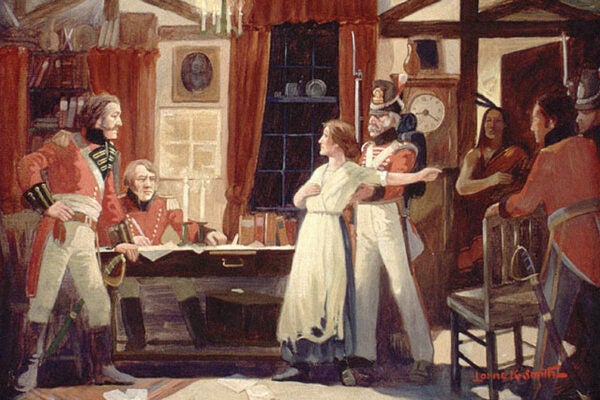Prior to President Joe Biden, the last sitting President to bow out of a Presidential election was Lyndon B. Johnson. But when Johnson declared that he would neither seek nor accept the nomination of the Democratic Party on March 31, 1968, it was shockingly unexpected.
At the beginning of his televised speech, Johnson announced a partial bombing halt in Vietnam and offered to engage in peace talks with North Vietnam. That was newsy enough, but the domestic political lede was buried. Nearing the end of the speech, Johnson said “I do not believe that I should devote an hour or a day of my time to any personal partisan causes or to duties other than the awesome duties of this office.” A man who hungered for the presidency since his teenage years, a pioneer in the use of money and technology in elections, simply bowed out of the 1968 race.
Elected as President in a landslide in 1964, LBJ was a consummate political animal who had been scheming his way through elections since high school. As detailed in Robert Caro’s monumental The Years of Lyndon Johnson, Johnson was one of the most skillful manipulators of power American representative democracy has ever seen—and one of the ablest “getters of power” in the first place. He was a master at winning elections; he’d only lost one race in his career, the 1941 special election for US Senator in Texas, and that was because he’d been out-cheated.
But here’s the thing. Showered with accolades for his personal sacrifice and being above the partisan hurly-burly, LBJ actually didn’t give up completely. In the words of Justin A. Nelson, the President “orchestrated a secret plan to control the 1968 Democratic Convention in order to keep his options open, including the possibility that the convention might draft him.”
Just minutes after Johnson’s surprise announcement, he was on the phone with Mayor Richard J. Daley of Chicago. Chicago was where the party’s convention would be in August. Surprised by the announcement, the epitome of the urban party boss encouraged Johnson, “we’re going to draft you.”
In our age of highly managed party political conventions, where predictability and messaging are key, old school contested conventions have largely disappeared. There was still a whiff of the smoke-filled backroom, where the power brokers decided things, in Daley’s hope that a divided convention could be wrangled into calling on Johnson to come back, unite the party, and win in November.
“From the White House,” writes Nelson “a nominally disinterested Johnson constructed an organization, opened up back channels of communication, manipulated other candidates, and ultimately tried to coordinate every detail of the convention.”
Officially at least, Johnson was no longer mixing government with politics. When Vice President Hubert H. Humphrey announced his candidacy for the presidency in April, Johnson didn’t move to endorse him, even though Humphrey would run on continuity with the Johnson legacy—including continuing the war in Vietnam. Johnson also reprimanded officials who started to endorse Humphrey or other Democratic candidates, including Senator Robert F. Kennedy, for the highest office.
As the summer convention approached, Humphrey led the delegate count, followed by Kennedy and then Senator Eugene McCarthy. Kennedy and McCarthy represented the anti-war wing of the party—McCarthy’s near upset victory in New Hampshire on March 12 had been one of the factors leading to Johnson’s assertion he would not run.
The assassination of Robert F. Kennedy on June 6 threw the pre-convention period into turmoil: what would RFK’s delegates do? Was this the moment for Johnson to stage-manage being pulled back in? As it happened, Johnson ultimately decided not to get back in the race. A brilliant counter of votes—in the House, the Senate, and in conventions—he seemed to know his time was, in fact, past.
The Democrats nominated Humphrey and Senator Edmund Muskie for president and vice president. This pro-war ticket was met with protest in the streets; the protests were met by a brutal police crackdown; and all of it was televised to the world. The Humphrey-Muskie ticket would lose in November to Richard Nixon and Spiro Agnew, two men who later ended up resigning from office in disgrace.
A political animal to the last, it seems unlikely that Johnson—“All the Way with LBJ” was a slogan he used in more than one campaign—could ever really be “above politics.” He was politics—and a realist.







